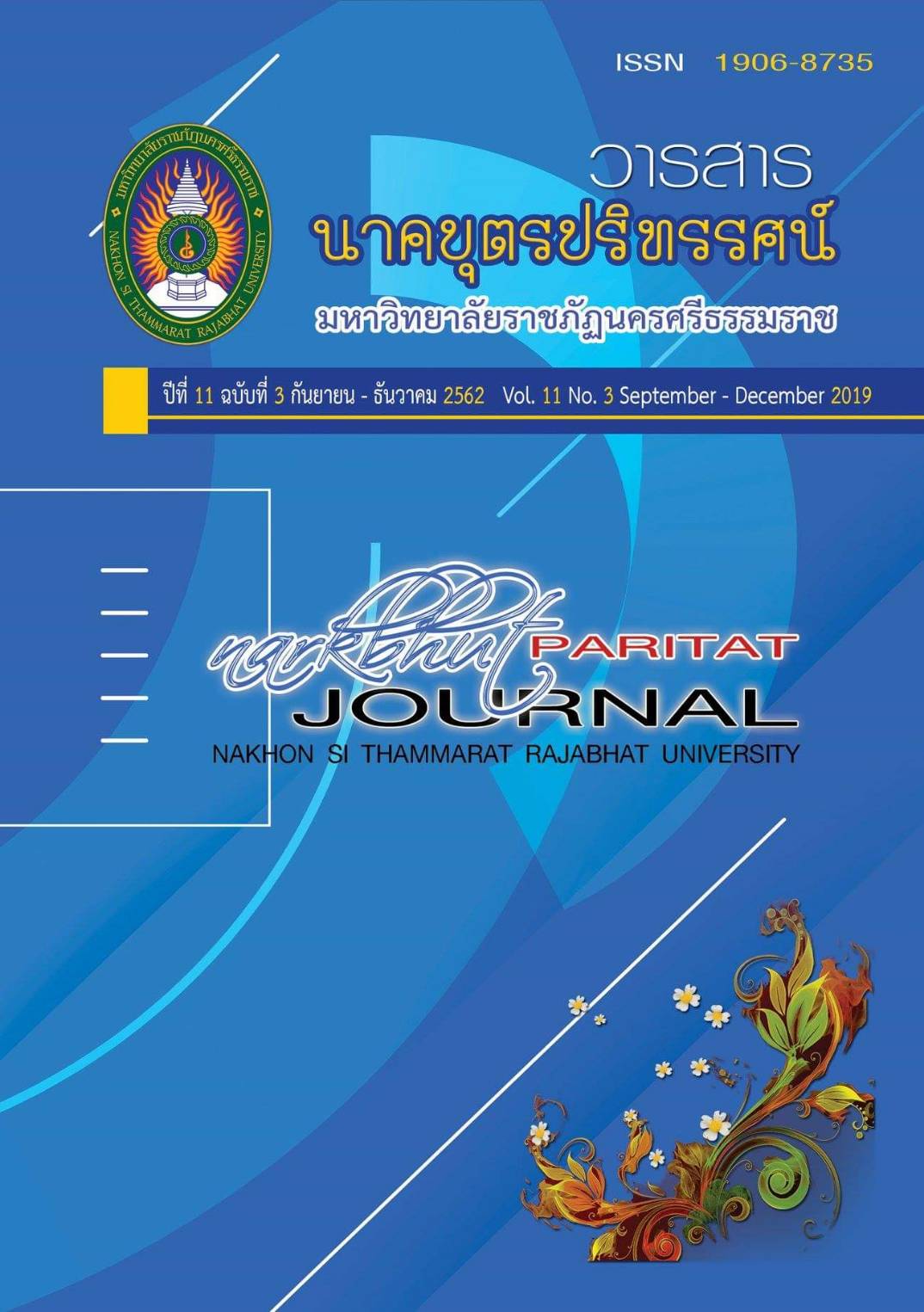EFL Undergraduates’ Opinions towards the Effectiveness of a Blended Learning Integrated Instruction in the Fundamental English Course
Main Article Content
บทคัดย่อ
Technology in language instruction has been widely used by previous researchers for decades. Blended learning integrated instruction is considered one of the instructional approaches that can help students learn foreign language on their own as well as learn with others. The purpose of the present study was to investigate EFL undergraduate students’ opinions towards the effectiveness of a blended learning integrated instruction in the Fundamental English course. The sample consisted of forty-five students who enrolled in the English for Application course at a public university in Suratthani, Thailand. The research instrument included the opinion interview protocol. The findings revealed that the students were satisfied with the contents, the materials, and the online activities of the course as they offered students opportunity to learn individually and collaboratively with others.
Article Details
เอกสารอ้างอิง
learning conference (Vol. 2008, p. 155-159). Portugal: Algarve.
Garrison, D. R., & Vaughan, N. D. (2008). Blended learning in higher education: Framework,
principles, and guidelines. John Wiley & Sons.
Huffman, J. (2014). Reading rate gains during a one-semester extensive reading course.
Reading in a foreign language, 26(2), 17-33.
Picciano, A. G. (2009). Blending with purpose : The multimodal model. Journal of asynchronous
learning networks, 13(1), 7-18.
Poon, J. (2013). Blended learning : An institutional approach for enhancing students' learning
experiences. Journal of Online Learning and Teaching, 9(2), 271-288.
Railton, D., & Watson. (2005). Teaching autonomy : ‘Reading groups’ and the development of
autonomous. Active Learning in Higher Education, 6, 182-193.
Sharma, P. (2010). Blended learning. ELT Journal, 64(4), 456-458.
Vaughan, N. (2007). Perspectives on blended learning in higher education. International
Journal on E-Learning, 6(1), 81-94.
Vivian, R. J. (2012). Students' Use of Personal Social Network Sites to Support their Learning
Experience. (Doctoral dissertation), University of South Australia.
Watson, J. (2008). Blended Learning: The Convergence of Online and Face-to-Face Education.
Promising Practices in Online Learning. North American Council for Online Learning.
Winne, P. H., Hadwin, A. F., & Gress, C. (2010). The learning kit project: Software tools for
supporting and researching regulation of collaborative learning. Computers in Human Behavior, 26(5), 787-793.


